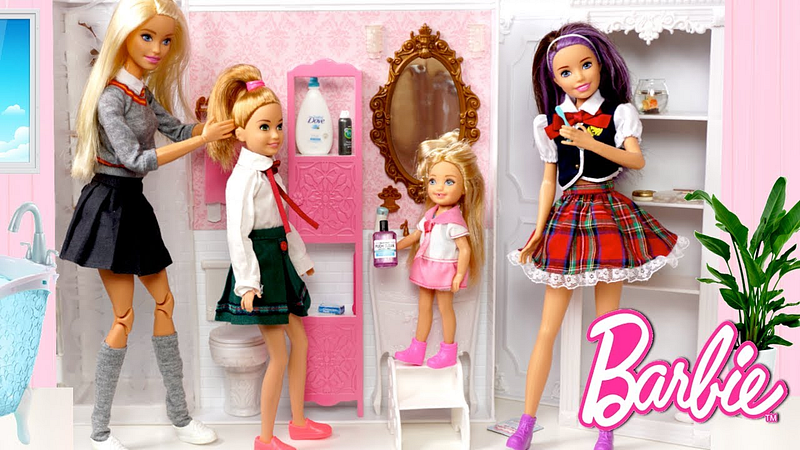Mothers, Women, and the Patriarchy
Everyone has a different relationship with their mothers.

Everyone has a different relationship with their mothers.
Personally, I love my mom. She’s a really important part of my life. She’s someone I can talk to about anything, someone who understands my humor, and my emotional support pillar. Despite some of our differences, we get along well, which I acknowledge is a joy that not everyone gets to experience. Not everyone gets along with their parents, and not everyone has a mom in their life, so I am yet again reminded of the privilege I hold to have a mother in mine, and to be close to her. (this is for you mum)
No matter what relationships you have with your mothers, your grandmothers, or the other women in your life, there is a problem that we have to address. One that doesn’t just affect mothers, but many women and men. The problem is this:
“In our modern-day capitalistic society, a majority of working mothers are burned out because of the underlying patriarchal structures present in our system.”
This is not a simple issue, nor is it a commonly discussed one. So let’s break this down step-by-step. First of all, let’s talk about..
The roles mothers are expected to play and why
1. The emotional coach (aka the therapist)

Mothers are often expected to be the emotional coach and therapist in the family, to provide emotional support to not just their spouses, but their children as well. This is grounded in the societal perception that women are generally more compassionate and empathetic compared to men. This leads to women, and mothers, generally being the go-to parent for emotional support and confiding one’s feelings to, because they are perceived to be more capable of holding space for their family member’s emotions, for understanding their troubles and responding with more empathy, and are thus seen as more emotionally safe to confide in compared to fathers, and perhaps men in general. But how true is this perception, and is it a product of nature or nurture?
According to neuroscientists, there is no part of the brain that clearly distinguishes between a male and a female. Scientists have found that compassion is instinctual regardless of gender, and no gender differences have been found amongst studies. However, in a self-report questionnaire, more women reported having experienced more compassion in their lives compared to men. This is likely due to the differences in the socialization processes that the men and women have experienced growing up.
Socialization refers to the process individuals go through as a child, where they learn about and internalize the social norms and ideologies of society, learning to behave in a way that is socially acceptable. A lot of research has shown that men and women are socialized very differently as infants, a term coined as “gender socialization”. Children are taught to behave according to society’s expectation of their gender through observing and learning from family, education, peers and media. These four factors, known as the four major agents of socialization, create and maintain the normalized expectations of gender-specific behavior and reinforce the gender roles present in society.

As you read the article, you’ll come to see how gender roles, and the patriarchy play a deeper role in the dynamics of this issue, but going back to the topic at hand, girls are taught to be more compassionate and nurturing, for example by being given dolls and baby carriages to play with which encourage such behaviors, and boys are given toy soldiers, guns and superheroes to play with, encouraging more aggressive and protective behavior. Gender roles are a whole other article on its own, but I believe I’ve made my point when I said that it’s not that men are incapable of empathy, or of holding space for another, it’s just that girls are taught to be caring and compassionate, whilst the emotional development and growth of young men shrugged off with a quick mutter of the phrase “they’re just boys”. What is this ladies, gents, and non-binary friends? A spawn of the anti-women, problematic system known as the patriarchy.
Mothers have their own problems too. They have their own stresses and sometimes, they also need to talk, but who can they talk to? If boys are taught “not to cry”, and to numb and hide their emotions, shaping them into emotionally unavailable men, who do the wives confide in? They can’t confide with their husbands, and they certainly shouldn’t confide in their children, which would not be healthy. Moms are expected to juggle their own emotional struggles, whilst supporting everyone else, which can be difficult, especially if the mom herself is going through a hard time.
So what happens is that their stress builds up, they become frustrated and angry, occasionally airing their frustrations with their friends but sometimes, it seeps out in other ways that ends up hurting both them and their loved ones. This is one of the few causes of the burnout that moms face, because when things get tough, and everyone and you are struggling, yes you’re supporting everyone, but who is supporting you?
2. Home and family manager

Many moms have to maintain the state of the house, ensure the fridge is stocked up with groceries, the clothes are ironed and folded, the kids have food and that everything is organized and functional. They basically manage everyone’s schedules and take care of everyone’s needs. Arguably this role can and has been carried out by dads, for example by househusbands and single fathers, and the relationship between gender roles and chores can differ based on the awareness and state of gender equality in the society. However, the disparity between the division of household labour, even between spouses without children, still exists. This disparity is known as a chore gap.
Research has shown that girls are asked to do more housework compared to boys. This teaches girls that housework is naturally their responsibility, a task that is expected of them, whilst teaching boys to depend on girls for housework. That’s why girls are expected to know how to cook and clean as a “basic, necessary skill”, but when boys know how to cook or clean, it’s “rare” and celebrated. This unequal division of household labour can result in feelings of worry, anxiety, and demoralization. It can also cause wives to feel distressed because unpaid house chores receive less recognition compared to paid work. This discontent can result in unhappiness, marital discord, and low self-esteem for wives, and mothers.
There are definitely other things a mother does that are too long to be listed here, or that doesn’t come to mind right now, but that just highlights the sheer weight of the invisible load that mothers have to carry.
Why working mothers are expected to be as financially successful as their husbands

Working mothers are expected to be as financially successful as their husbands, in order to maintain her financial independence from her husband, which functions as a signal of her own empowerment as a working woman. This is because in a capitalistic society that believes that a person’s worth equates to the monetary value of the work they provide, a working mother is expected to earn a similar income to that of a man to prove that she is as worthy and as capable as a man. At the same time, the working mother is expected to juggle house chores, the emotional well-being of every family member, to remember the responsibilities and to manage the schedules of her family members and more. But most of the time, we don’t see that.
We don’t see all the other responsibilities that a mother, a woman, is expected to fulfill. Why? The work of a mother often goes under-appreciated and undervalued because it is difficult to monetarily assess the monetary value of the tasks she carries out and does for her family.
How do you charge your mom for the emotional support she provides? For reminding you to wake up early or of the plans you have? To ensure the house is clean and that everyone is where they need to be on time? Of course, there are instances where wives do earn more than their husbands but most of these wives are still taught and are more likely to be held responsible by society for the general well-being of their child, and for the state of their home.
It is also important to add that another possible reason why the work and job of being a mother is not as highly valued, despite claims of it being “the hardest job in the world”, is because there are no set deadlines, working hours or quarterly performance reviews, because it’s “measured” in a way that is very different from the corporate jobs the system prepares us for. Mothers are not given a score out of 10, and a lot of their work goes unseen, which relates to why their work is considered “invisible”.
It is easy for us to subconsciously underplay the value of the invisible work a mom does for the family because in a society where the value of money has been ingrained to us from a young age, we are taught to value jobs that pay us, and not the jobs that don’t. However, it is thus important for us to remind ourselves to consciously recognise the effort, hard work, and time that mothers put into managing the system, and appreciate the hands that pull the invisible strings that keep our families functioning.
A Malaysian example of the gender inequality present in society

During the lockdown, Malaysia made international news when the Women and Family Ministry posted a misogynistic infographic with condescending tips for wives on how to steer clear of domestic arguments with their husbands. Amongst this included to avoid wearing home clothes at home, to instead wear makeup and dress neatly, to hold back from making sarcastic comments if their husbands don’t help with housework, and most famously,
“To speak like Doraemon (a blue animated robot cat), and to follow their statements with a feminine, coy laugh.”
The ministry was heavily criticized for this, given how it perpetuated the patriarchy and had obvious misogyny. However, this just goes to show how the perception of women and the expectations that are placed by others and oneself on how a woman should be like and what a woman should do, instilled into children by the patriarchy, leads to working mothers being overworked and burned out from completing the overflowing number of tasks they “have” to finish.
Why this should matter to you, even if you’re not a mom or a woman

Simple, because it’s a cycle. Working moms are frustrated and burned out from their hard work being underappreciated and unrecognized at home, as well as from the work strain and stress that they go through at work, made even worse if they don’t earn as much as their husbands and are thus considered “less successful” and “less of a contributor” compared to them, which can lead to marital discourse.
Why is it a cycle? The father gets frustrated and angry at the mother if he sees her resting, complaining that she does not contribute enough perhaps because he might not recognise the value or weight of the jobs she carries out for the family and might think she’s slacking off. Doing so, he puts down both the mother and what she’s done for the family, devaluing her contributions and thus disrespecting her. The mother gets frustrated and angry because she feels underappreciated and sad that what she does for the ones she loves isn’t appreciated by them. The mom gets burnt out because she’s “on call” 24/7, having to take care of everyone’s needs, pestered whenever she wants to rest and more, all whilst being told by society, and perhaps even her husband that she’s not doing enough. The son observes his father, and replicates his behavior with his mother as well as his wife, disrespecting them. The daughter observes how her father treats her mother and treats her mother the same way, disrespecting her mother, only to become a mother herself and to receive the same kind of treatment from her husband and her kids, developing a similar dynamic. Hence, the cycle repeats itself.
Yes, this is a hypothetical situation, but the concept of it comes from a quote from the book “Radical Feminist Therapy: Working in the Context of Violence”. The quote is this:
I refuse to be this girl, I refuse to fall puppet to the patriarchy. This issue affects everyone, including you. If you are a girl reading this, you, and the other women in your life, could become the mother in that situation. If you are a man and you choose to ignore the existence and harms of the patriarchy, you are subjecting your future wife and daughter, as well as all your female relatives and friends, to the possibility of such a fate. A possibility, according to the statistics we’ve read so far and the status quo, is likely to happen, unless we do something to change it.
The patriarchy is the perpetrator, but we will not be victims.
What can we do to address this problem
1. Talk about it
The first, and one of the most important steps in combating the problem, is identifying the issue and actually talking about it. This issue is apparent and relevant to many, but is not often spoken about and sometimes even forgotten, because of how ingrained and normalized many of these harmful patriarchal structures that exist in our society are. We need to actually start the conversation and keep the ball rolling on this issue, because it is only when people start talking about the problem, will they be more interested in finding and acting upon solutions to solve this systemic issue together.
2. Families can set an example

According to the psychological study of Bandura et al, children observe, imitate and model the behavior of their parents of the same-sex as them to a higher degree, compared to that of an opposite sex. Mothers can delegate and divide household responsibilities to all family members, teaching daughters that it is not solely the role of women. Fathers can instead initiate helping out with chores to demonstrate to both sons and daughters that men can, and should, also help out in the house, encouraging both gender equality, and raising the bar for men slightly from the pits of hell. Men can also actively encourage gender equality by sharing the responsibilities of childcare and housework, as well as helping complete simple tasks like washing dishes and laundry.
This also allows for working mothers to have more time for themselves, as well as more time to increase their monetary and financial success if that is what they want for themselves.
3. Get boys involved as soon as possible.
Teach boys how to be compassionate, nurturing and organized. Teach them how to hear someone out, and to truly listen to their feelings and perspective. Boys are capable of showing empathy too. Fathers in our society are too able to be the person their children can confide in and lean on, they just need to practice and learn.
It’s best to start incorporating gender equality and fairness at as early an age as possible. However, it doesn’t mean that it’s too late. It’s possible at any age to rewire negative and misogynistic thoughts, and it’s always possible to start learning new and positive feminist ones.
As I read more on feminism, and gain more life experience, I might have more to add to this issue. I might gain a greater understanding of it, as well as discover more and better ways to address this issue by uprooting the toxic roots of the patriarchy. However for now, I hope my two main purposes for writing this article have become clear to you.
Firstly, be aware of the patriarchy. Read more about it, learn about it, unlearn it and unearth any self-limiting beliefs that might be hurting you or the women in your life. Even though we’re now a lot more aware about gender equality and double-standards, there’s still further to go on our journey to true gender equality. It’s important that we bring these problems into our attention and keep them in mind whenever we interact with the mother figures in our lives to prevent such an event from taking fruit, as it is easy for us to forget the existence and effects of the patriarchy, and fall puppet to it, when we forget the one who’s pulling the strings.
Secondly and lastly, if your mom’s a decent person and is still in your life, be kinder to your moms. Remember to treat your moms better, and to appreciate them!

[Written by: Ruby Seet. Edited by: Suhana Kabeer]

